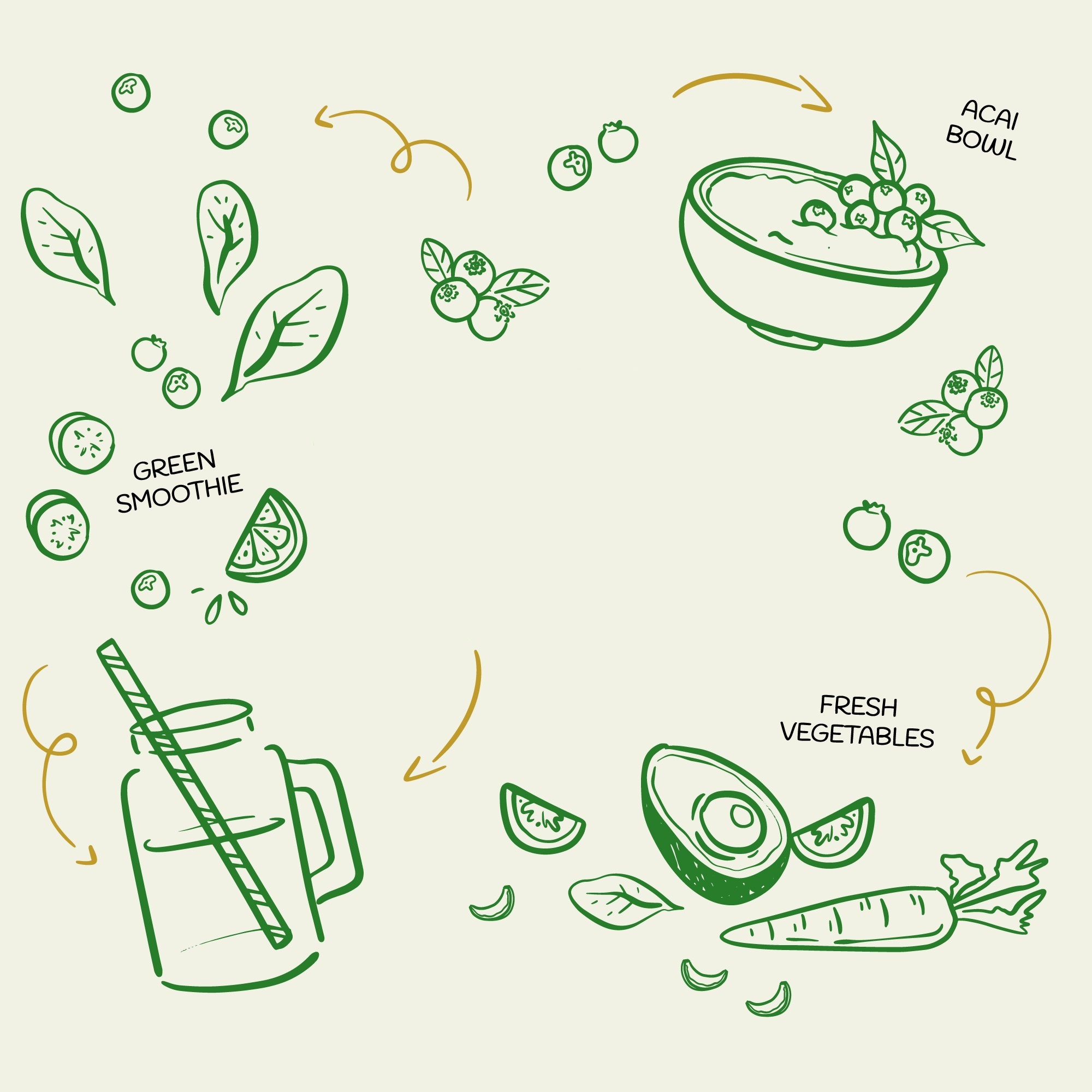Foodtrition: Which food is good for our health?
Food is anything that we consume right from French fries to the typical Indian thali that comprises roti, sabzi, dal, and rice. India is a land of diversity and people of different caste, communities and religions stay together under one roof. So, there is a large diversity in culture, traditions, norms, beliefs, clothing, festivals, and also food. This also depends upon the physical features. Food also, therefore, has a wide variety right from the north Indian Cholae bhature, mouth-watering Samosa to Dahi Bhalla, to the fermented idli, dosas, uttapam, and curd rice in the south. Similarly the food like Litti Chokha, a special delicacy from Bihar, Machcher Jhol, rasgulla, Dalma, Assamese Fish Curry, Momos, and Thukpa from the east. Also the Vada Pav, Zunka Bhakri a traditional Maharashtrian dish, Bombay duck, Goan fish curry, bebinca. methi ka thepla, shrikhand, and dhokla in the west. Foody people from all over the world come here to India to taste the wide variety of delicacies.
Every food that we consume need not be nutritious. Sometimes we eat just for its taste as it caters to our tongue, while sometimes we expect something crispy crunchy, and sometimes spicy like biryani or sweet like cake. But everything that we take in need not be loaded with nutritional value.
We as individuals need to understand which food is good for our health and the proper functioning of our internal organs. Nutritional means which provides our body with some kind of vitamins and/or minerals. This is necessary for the smooth functioning of our bodies. Different food provides us with different nutrition. Pomegranate is packed with antioxidants and fat-burning Vitamin C. It’s very effective in losing weight. Hemp is one of the few vegetarian sources of complete protein as it contains all 20 amino acids, the key to building calorie-burning muscle. Pumpkin seeds for energy and chia seeds for strong bones, Sesame seeds for a healthy heart, Flax seeds for cancer prevention. Vegetables and fruits contain mainly vitamins, minerals, and fibre.
These include vitamins A (beta-carotene), C and E, magnesium, zinc, phosphorous and folic acid. Folic acid may reduce blood levels of homocysteine, a substance that may be a risk factor for coronary heart disease. They also help in lowering the obesity, cholesterol level, and blood pressure of an individual. Scientific research shows that if you regularly eat lots of fruit and vegetables, you have a lower risk of Type 2 diabetes,
Heart (cardiovascular) disease – when fruits and vegetables are eaten as food, not taken as supplements
Cancer – some forms of cancer, later in life High blood pressure (hypertension).
Coloured fruits and vegetables are advised by Doctors. Like Red foods – like tomatoes and watermelon. These contain lycopene, which is thought to be important for fighting prostate cancer and heart disease
Green vegetables – like spinach and kale. These contain lutein and zeaxanthin, which may help protect against age-related eye disease
Blue and purple foods – like blueberries and eggplant. These contain anthocyanins, which may help protect the body from cancer
White foods – like cauliflower. These contain sulforaphane and may also help protect against some cancers.
In short eating, a nutritious diet is very essential to lead a healthy life.

Swati Joshi, Science Facilitator (Middle School)


